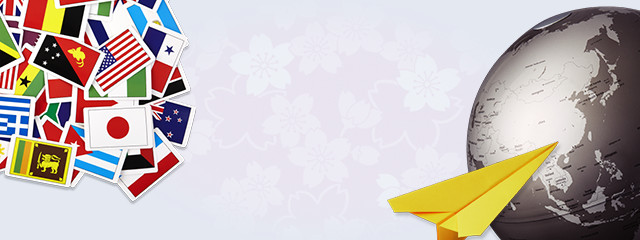国際学研究科Introduction to the Graduate School of International Studies
Our new Graduate School of International Studies offers co-educational M.A. programs in Area/Cultural Studies and International Economics/Cooperation. Students will be challenged to question their assumptions and expand their knowledge and understanding while pursuing innovative research.
Our principle is to provide each student with two teachers who specialize in different fields. This ensures that students have the opportunity to combine academic disciplines and experiment with various ideas in their studies.
Modern society is rapidly becoming more globalized, and the aim of the Graduate School of International Studies is to promote focused studies of specific cultures and comparative studies of different cultures, as well as studies of international systems and international cooperation. By taking part in such studies, it is possible for students to acquire highly developed expertise and insight.
In addition, students develop practical skills in areas such as problem-solving and international communication. They do this both by participating in academic exercises such as seminars and thesis writing, and through practical activities such as internships and fieldwork.
On completion of their studies, it is expected that students will become active in areas such as international business or international exchange. Some students may wish to pursue their studies further in other graduate programs, while others may want to start work in the field of education. It is possible to gain an advanced certificate as a junior high school and senior high school teacher of history, geography or English within the program.
The Graduate School is co-educational. International students are encouraged to apply. The School aims to create an open research and learning environment that promotes education for various kinds of people. It is possible for students to transfer credits that have been acquired overseas or in another graduate school.
From Teachers
Hirotsugu Yoshitake(International Cooperation)
Our contemporary world is buffeted by problems that go beyond national boundaries, including the widening gap between developed and developing countries, the world economic crisis, climate change and global warming, environmental disruption, the scarcity of natural resources, international conflicts, and infectious diseases. No one country can solve these complex global issues alone. The situation requires global-scale international cooperation. In order to educate graduates who will contribute to various areas of international cooperation, GSIS (the Graduate School of International Studies) offers an International Cooperation Studies Program consisting of three interdisciplinary clusters; Global Governance, Sustainability and the North-South divide.
This interdisciplinary approach enables students to address global issues from several different academic perspectives. While encouraging the acquisition of theoretical and conceptual knowledge, our program is concerned with the practical application of this knowledge to realities. The program values (though it does not require) field experience involving study and /or work in a developing region, and internship in a local, national, or international community organization.
As well as the specific knowledge gained from the program, students will develop many transferable skills that are highly valued by firms and which will increase their subsequent employability. In addition to recent university graduates, we welcome applicants with various international, working and other experiences.







